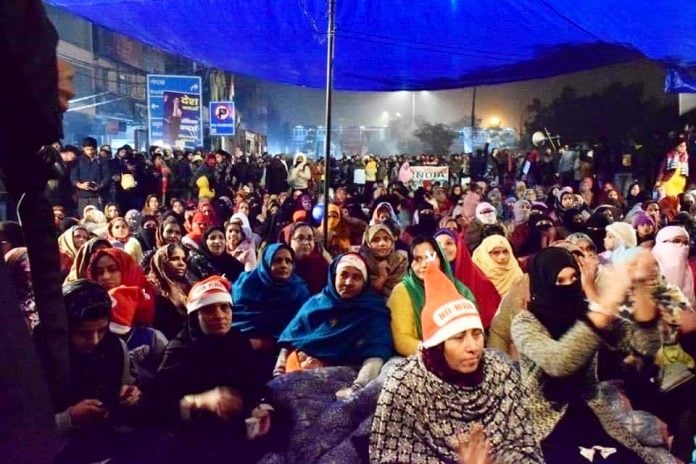The Supreme Court on Wednesday deferred the hearing on the matter of Shaheen Bagh road blockade to march 23.
However, the court refused to entertain the interlocutory applications filed in the main petition seeking SIT probe into reports of police action during Delhi riots. The court said that the Delhi High Court was already seized of the issue.
A bench of Justices Sanjay Kishan Kaul and KM Joseph said environment is not conducive to hear the PILs against the Shaheen Bagh protest, two days after court-appointed interlocutors filed their report in a sealed envelope.
“Environment isn’t very conducive to hear Shaheen Bagh protests case. Sanity has to be maintained by everyone when a matter is to be heard,” the apex court observed.
Justice Kaul said, “We will take up the matter again after Holi break. By then, everything will cool down.”
Yesterday, an interlocutory application was filed by Bhim Army Chief Chandra Shekhar Azad and Wajahat Habibullah– one of the interlocutors, seeking directions to the police to register FIRs based on complaints following violence in which 20, including a police constable, were killed in Northeast Delhi and provide protection to women protesters at Shaheen Bagh.
Justice KM Joseph expressed his anguish at the loss of lives. He said, “It’s a matter of concern, 13 lives have been lost in the last two days”. The judge was apprised of by the lawyers that the fatalities have reached 20.
However, the bench refused to entertain the pleas on violence by saying that it will not expand the scope of original petitions filed in connection with Shaheen Bagh protests by looking into pleas on violence.
Meanwhile, the court justified its decision to appoint interlocutors, saying it is an out-of-the-box solution.
Questioning the role of police, Justice Joseph said, “The problem is lack of professionalism on the part of the police. If it had acted, the situation that we are witnessing today would not have arisen.”
He further said that the state governments have also been reluctant in implementing the guidelines laid down in Prakash Singh case.
In this case, the Supreme Court ordered the states and Union Territories that police reform must take place. It directed to comply with seven binding directives that would kick start reform.
Among other directives, the Court had directed to ensure that the state government doesn’t exercise unwarranted influence or pressure on the police and separate the investigation and law and order functions of the police.
Solicitor General Tushar Mehta, appearing for the Delhi Police and Delhi government, responded by saying this is not a right time to demoralize the police.
“We are not aware of the ground realities and how the police functioned and acted in the last three days. DCP is on the ventilator. He was virtually lynched,” said Mehta.
The bench also refused to accept the SG request for the proceedings to not be reported in the media.
Advocates Sanjay Hegde, Sadhana Ramachandran and Wajahat Habibullah, who were appointed by the Supreme Court to talk to Shaheen Bagh’s anti-CAA protesters sitting on a road for over two months, submitted their report on Monday in a sealed cover.
The top court appointed the interlocutors on a petition was filed by advocate and activist Amit Sahni who alleged that protest in the Shaheen Bagh area is disrupting daily life.
The Kalindi Kunj-Shaheen Bagh Stretch i.e. Road No. 13 A (between Mathura Road and Kalindi Kunj) as well as Okhla underpass, were closed on December 15, 2019, due to the protests as a temporary measure, but the road closure was extended from time to time till date.
Around 700 women, some of whom with children, have been camping since December 15 and refused to move till the controversial statute is withdrawn.


